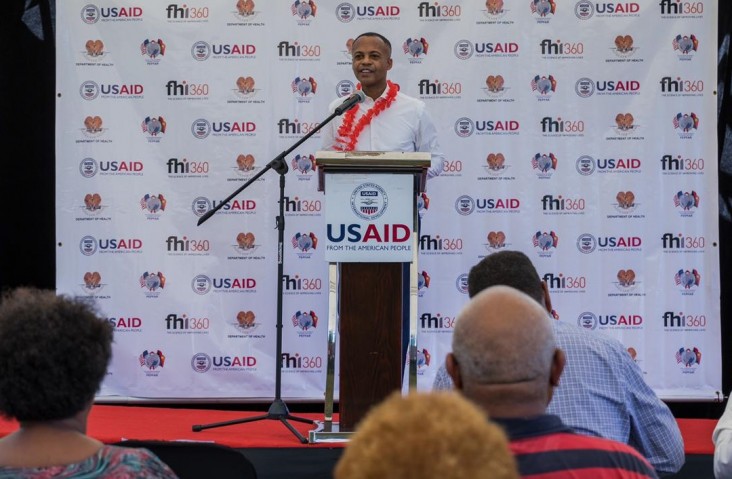Speeches Shim

[As Prepared]
[Greetings]
I would like to start by thanking you for giving me the opportunity to visit your beautiful country and particularly, this clinic. As the Mission Director of the U.S. Agency for International Development, or USAID, Pacific Islands, it is wonderful to see in person the great work that you are doing to expand access to quality HIV and gender-based violence, or GBV, services to the people of the National Capital District.
For the past 30 years, USAID has been at the forefront combating HIV and AIDS around the world. USAID is the lead U.S. government agency for international development and humanitarian assistance, and is a key implementing partner under the U.S. President’s Emergency Plan for AIDS Relief, or PEPFAR, which is the largest and most diverse HIV and AIDS prevention, care, and treatment initiative in the world.
The U.S. government cares deeply for the health and well-being of the Papua New Guinean people. USAID is also uniquely positioned to address the HIV and AIDS epidemic from a development lens — keeping people, prosperity, and self-reliance at the center of all that the Agency does. USAID recognized early on that those who are most vulnerable are truly part of the solution, not the problem.
Here in Papua New Guinea, the U.S. government, through USAID, is investing more than 45.5 million kina to support sustainable systems and institutionalize effective interventions that reduce HIV prevalence and GBV among key populations. Our work also mitigates HIV and GBV impacts on high-risk populations, their partners, and their families. The PEPFAR program in PNG, together with the leadership of the National Department of Health, focuses on key policy implementation to catalyze and bolster national and provincial HIV and GBV work. USAID strengthens the capacity of national and local government partners, civil society, and communities to improve patient-centered HIV and GBV care. USAID also bolsters the capacity of partners to develop and manage cost-effective models that help ensure people living with HIV are enrolled in HIV treatment and are virally suppressed.
To the many of you here who are at the frontlines of driving down HIV and AIDS in this country, because of your hard work, dedication, and selfless service, people living with HIV, key populations, women, men, and youth have a clinic where they can access quality services to prevent, diagnose, care for, and treat HIV and other sexually transmitted infections. Here, they will also receive dignified care in the very unfortunate event of having experienced GBV.
I congratulate Anglicare for being among the first recipient of the sub-grant awards that will contribute to PNG’s HIV response. Because we know your strategic role in communities, a major USAID priority is building the capacity of civil society organizations to effectively implement sensitive HIV prevention, care, and treatment programs.
Under this sub-award, you will contribute actively to keeping people with HIV in care, helping find those who have dropped out, and returning them to the care they need. And through your active case management, you will play an invaluable role in preventing further losses. I am confident that your partnership with the national government and the American people will only further empower you to do even more for vulnerable populations and help the country achieve epidemic control.
I would like to applaud the leadership of the National Department of Health, National Capital District Health Services, the Key Populations Consortium, and other civil society organizations for their support and partnership with the national government and USAID. Community leaders, human rights defenders, settlements courts’ magistrates, youth leaders, and all of us have a role to play in providing a conducive environment for key populations, women and girls, and other vulnerable and priority populations to access HIV services. Through our partnership over the past three years, nearly 5,000 people living with HIV in the National Capital District have been enrolled on life-saving antiretroviral therapy.
I would also like to acknowledge our friends (PLHIV) and key populations that have been in the forefront working tirelessly to demand policy change to cater for those impacted and affected, advocate for user-friendly services, tracking friends who have defaulted, missed appointments or are lost to follow-up and return them back to care.
I look forward to how our continued partnership will only further improve the lives of individuals and communities. Together, we can achieve our shared goal of a world where HIV and AIDS are no longer burdens on health and development
Thank you and may God bless you all.

Comment
Make a general inquiry or suggest an improvement.